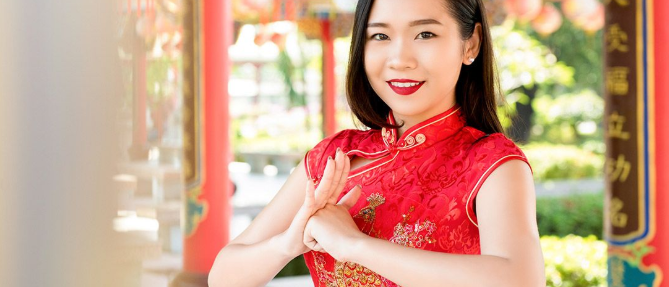How biracial Singaporeans experience the nuances of cultural belonging during festive celebrations.
In the blink of an eye, February ushers in the vibrant Chinese New Year celebrations. While this season signifies joy, unity, and fresh beginnings for many, for biracial Singaporeans, it often brings a more complex set of emotions. The festivities highlight questions of identity, belonging, and cultural authenticity—leaving many wondering, “Am I Chinese enough?”
For those who straddle different heritages, Chinese New Year can be a bittersweet occasion. We spoke with several biracial Singaporeans to understand their perspectives on balancing cultural traditions and personal identity.
Balancing Thai and Chinese Identities
“It’s kind of a funny story because my Thai mum still gives us ang baos, even though she doesn’t celebrate Chinese New Year. She even learned Mandarin and Hokkien after moving here from Thailand!
But I often face insensitive comments, like being called Siam Bu during gatherings. While I look more Chinese, I feel closer to my Thai side. The pace of life in Chiang Mai, my hometown, resonates more with me. At the same time, I don’t feel entirely Thai when I’m there, nor do I feel entirely Chinese in Singapore. It’s a strange in-between.”
— Kelly, Chinese/Thai
Feeling Alien in Familiar Surroundings
“I’m basically a potato—yellow inside, brown outside. My mum didn’t teach us her Sinhala culture, and I don’t even speak the language. I identify more with being Chinese, but I still feel out of place sometimes.
At Chinese New Year gatherings, distant relatives often look confused to see me there. It’s awkward when they ask things like, ‘Wow, you can speak Chinese?’ Why wouldn’t I? I grew up in this culture. It’s frustrating having to prove I belong.”
— Rslyne, Chinese/Sinhalese
Bridging Two Worlds
“My cousin’s new partners always do a double take when I grab bak kwa, probably because of my skin tone. It feels like I’m constantly sending silent signals to prove I’m half-Chinese and that it’s okay for me to be here.
I can’t speak Mandarin, and my greetings are usually broken, but I still feel the need to justify my place in these celebrations. No one should have to feel like an outsider in their own culture.”
— Sarah, Chinese/Malay
An Outsider’s Perspective
“Chinese New Year has always felt like dipping my toes into Chinese culture without fully immersing. My dad is a pastor, so there’s no mahjong or gambling in our house. Instead, we have a mix of Indian and Chinese dishes and say a prayer before eating.
I don’t feel fully connected to either side. I don’t listen to Jay Chou or do Chinese karaoke, and I’m not close to my Chinese relatives. Being half-Indian and half-Chinese often feels like standing between two starkly different worlds, not fully belonging to either.”
— Joshua, Chinese/Indian
Embracing Mixed Heritage
“I tend to envy people who are fully Chinese because they have plans for both days of the New Year. For me, the second day is usually quiet since my Italian relatives live abroad. It feels a little lonely, but I’ve learned to make the most of it by spending time with my Italian mum.
Chinese New Year is still a chance for me to stay connected to my roots. Even though I don’t speak Chinese daily, these traditions remind me of where I come from. One day, I hope to carry them forward.”
— Ambra, Chinese/Italian
A Celebration of Complexity
For biracial individuals, Chinese New Year is a time to reflect on the nuances of their identity. While cultural traditions may highlight feelings of not fitting in, they also offer an opportunity to celebrate and embrace the unique blend of heritages that define them.








